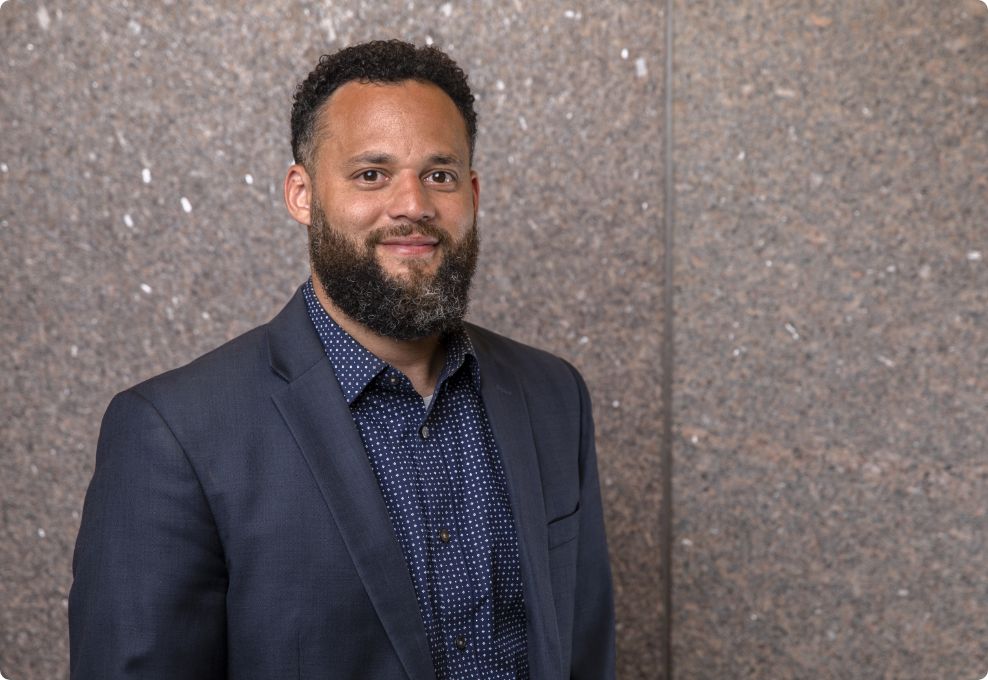
A Letter From Our President: Daniel Williams
It can be hard in a society that values being busy to step away from the hustle and bustle of life to take a deep breath and pause, to consider what we are learning, how we are feeling, what is good, what is working, what is not. When productivity and efficiency are the target and exhaustion the norm, these moments of reflection are few and far between. Most of us have responded to inquiries about how we are with, “Good, but busy,” almost like a badge of honor, and we search for apps to manage endless to-do lists and viral life hacks to help us accomplish more, more, more. For those in education, social service, and non-profit work, for on-the-ground organizers, for caregivers, the pressure to do more is immense. These are the people who see the inequities throughout our systems firsthand and feel the urgency. They know the people, their families, and their stories. Their work is not a case study–there are real people being harmed by unfair and unjust systems, and something must be done. I have felt the pressure of this throughout my career, as a middle and high school principal, a non-profit leader, and now in my current role in philanthropy. The responsibility to be and do better, to effect change and progress, to impact harmful systems in a positive way often feels overwhelming and exhausting.
We have designed our work at the Steelcase Foundation over this past year keeping in mind the urgency, importance, and relentlessness of justice work and our responsibilities to our community. In Pedagogy of the Oppressed, Paulo Freire wrote of liberation as a “praxis,” an iterative cycle of “reflection and action upon the world in order to transform it” (1975, p. 52). We seek to do and support praxis within our community, and this commitment has shown up in a number of ways.
First, we have worked to recognize the weight of the work our partners do, adapting our own systems and the way we approach our relationships with them. We have drastically eased and shortened the grant-making process; we have more clearly identified our grantmaking parameters, allowing for more direct and streamlined conversations with potential partners; and we have shifted away from reporting for ‘accountability’ towards a communal act of sharing learning and celebration that understands and is attuned to the intersectionality, complexity and realities of the work. We have also sought to create spaces for pause and critical reflection, kicking off learning cohorts, convening partners, and embarking on a large initiative that centers the felt difference of families, specifically mothers of color.
Furthermore, this focus on reflection has allowed us to really center and see people in our work, those who make up an incredible network of disrupters, innovators, caregivers, families, teachers… We have prioritized listening, dialogue, and relationship-building. The inherent brilliance of our community and those doing the work everyday cannot be overstated and often gets lost when we center solely stories of damage and pain, without also uplifting those of resistance and joy. A large part of our reimagined Mission, Vision and Guiding Principles is centered around this shift and in what and who is centered in our work.
Along with space for pause and reflection, praxis calls for a staunch commitment to action in pursuit of transformation. At the Steelcase Foundation, we believe in the power of education to transform lives, and the Foundation’s primary focus is on increasing access to quality public education and helping young people and their families achieve success–as they define it. We work with partners who share our commitment since true impact comes from collaboration and a belief that things can be better. We strategically invest in and work with like-minded co-conspirators to ensure youth and their families have the opportunities and resources they need and deserve.
As we began to compile this annual report, I found myself grateful for this opportunity to reflect on our year together as a team, a foundation, and a community. This report is not a laundry list of things we funded. Instead, I have discovered that this work is less about the funding, and more about what the funding affords. It is a tapestry of stories, successes, learnings, and people. Respecting the hard work, celebrating the joy, and highlighting the true brilliance of our families and community members isn’t a strategy, it is a necessity. Yes, there will always be something to do–and doing is important–but we must also pause, reflect, recharge, and celebrate. These are actions as well.
As a Foundation we are continuing to wrestle with how we can be a pressure release instead of another stressor. How can we provide respite for folks through flexible funding, thought partnership, technical assistance, retreat space, network building and so on? We are still building, learning and growing into this. We will make mistakes and missteps. We will make space to critically reflect, listen, adjust, act, and do it all again, with, alongside, and in support of all who do this critical work in our community.